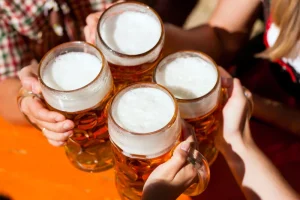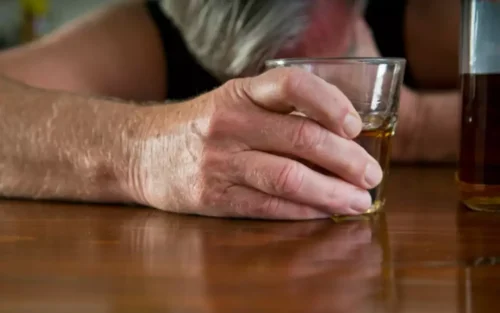
This convergence is attributed to shifting social roles, gender expectations, and family attitudes towards alcohol use. For the elderly, those aged 65 and older, the rates of binge and heavy drinking are relatively low, with only a slight difference between the two (5.1% vs. 4.4%). This indicates a more moderate drinking pattern within this age group.
What Are Social Drinkers?
Addiction Resource is an educational platform for sharing and disseminating information about addiction and substance abuse recovery centers. Addiction Resource is not a healthcare provider, nor does it claim to offer sound medical advice to anyone. Addiction Resource does not favor or support any specific recovery center, nor do we claim to ensure the quality, validity, or effectiveness of any particular treatment center. No one should assume the information provided on Addiction Resource as authoritative and should always defer to the advice and care provided by a medical doctor. Social drinking is nowadays considered normal and harmless; this is often reinforced by how the media portrays alcohol.
Decision-making tasks
- Today, alcohol continues to function as a popular form of socialization all over the world.
- This is why naturally fermented alcoholic beverages top out at this level.
’ Well, the definition of social drinking can be tough to outline sometimes as it may occur in different forms. However, the social drinking definition of the consumption of alcoholic beverages in social settings, like parties, gatherings, or casual meetings with friends and colleagues, is pretty accurate. A social drinker seeks alcohol as a way of socializing, relaxing, and enjoying rather than getting intoxicated or coping with stress. Social drinking is a practice that enjoys a deep-rooted presence in our culture, often serving as a cornerstone for social gatherings. Ranging from laid-back meetups to grand celebrations, alcohol is frequently cast in the spotlight.
Addiction Destroys Dreams, We Can Help
- Alcoholism is a chronic disease, and individuals in recovery are at risk of relapse, even after a period of sober living.
- However, the results from these two studies should be interpreted with caution, given the small sample sizes and the correlational nature of the data in the latter study.
- This shift is influenced by social norms, roles, and values, as well as policy interventions such as changes in minimum legal drinking age laws.
- However, it is important to recognize them as they can reflect an escalation in your drinking pattern.
The brain is also affected, with alcohol interfering with communication pathways, potentially altering brain structure and function. Although most social drinkers don’t become alcoholics, there are risks involved. ” A social drinker is someone who often drinks in social settings, such https://ecosoberhouse.com/ as bars or parties, but doesn’t experience a related life disruption. In other words, alcohol doesn’t lead them to any serious physical, mental, or emotional issues. Acute effects of alcohol on altruistic behavior using real monetary rewards have hardly been assessed at all previously.

If you or anyone you know is undergoing a severe health crisis, call a doctor or 911 immediately. Social drinking, when done responsibly and in moderation, can have both benefits and risks to an individual´s well-being. Bur a person who recorded videos of him gave us permission to use them on-air and online and claims he was at the bar, drinking underage and acting inappropriately. The National Institute on Alcohol Abuse and Alcoholism notes that 85.6% of people in the U.S. age 18 or older report they have consumed alcohol at some point in their lives. 69.5% reported they drank alcohol in the past year, and 54.9% reported they drank within the last month.
What is the Difference Between an Occasional Drinker and a Social Drinker?

Studies have also shown that the introduction and spread of alcohol in various societies have led to distinct cultural attitudes towards drinking. The presence of alcohol in communities and its accessibility, often influenced by socioeconomic factors, have shaped drinking behaviors and social dynamics. Research suggests that the interaction between cultural background and alcohol can be complex, with factors such as immigration, discrimination, and the availability of alcohol playing roles in shaping social drinking patterns. If you’re asking what is social drinking and wondering if your drinking habits have become an issue, it’s important to reach out for help.

The earlier you address and tackle an addiction to alcohol, the better. Alcoholism is considered the state you reach when you can no longer social drinking and drinking problem control your alcohol intake. An alcoholic will experience intense cravings and will continue to drink despite the negative consequences.

Leave a Reply